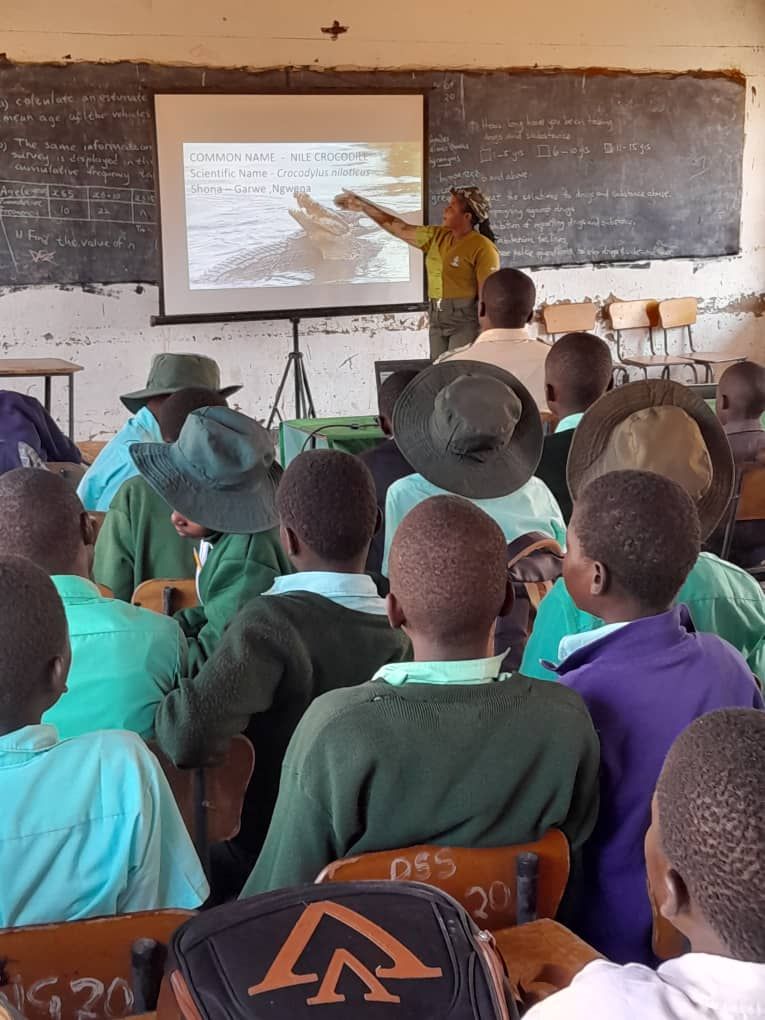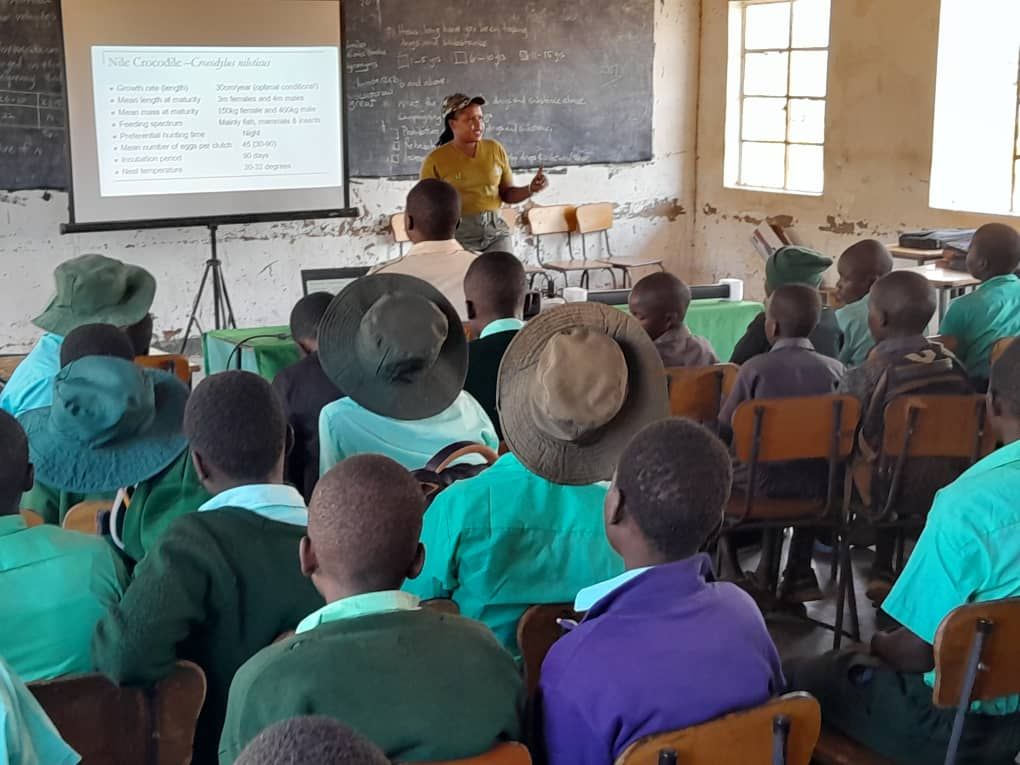The Issue
Extensive amounts of deforestation and the depletion of soil nutrients due to unsustainable agricultural practices are exacerbating the effects of climate change. This is increasing carbon emissions, negatively impacting the environment and biodiversity ecosystem in the northern part of Zimbabwe. This area os home to the UNESCO Biosphere Reserve in the Zambezi Valley Basin – one of the world’s last few remaining untamed wilderness areas, rich in wild and bird life. The failure to secure active participation of young people in the preservation of such habitats could mean that such natural habitats will be lost forever, along with the animals that live in it, and the benefits to all of mankind.
The Project
Youth (ages 5-18) focused environment and conservation clubs have been introduced in five (5) schools in Muzarabani, located in Mashonaland Central Province in Zimbabwe. This is being done through “Utariri”, a DCA led programme.
These clubs are supervised by teachers equipped with a curriculum created in consultation with national environment protection authorities, maximizing its effect on the community. Among the immediate benefits is the ability of local youth to socialize conservation through daily conversations with their parents and friends at home.

The Intervention emphasizes important concepts such as sustainable conservation including gully reclamation, reforestation and habitat preservation. Youth are taught about environmental resilience where a community can withstand, recover and adapt to environmental disruptions. It reiterates the power of collective responsibility building on the concept of Utariri – which means Stewardship (in Shona, a local language), and the importance of restoring ecological balance within the community through student led practical activities.
These include cultivating gardens using sustainable agroecological techniques such as rainwater harvesting as part of water conservation. Reforestation and gully reclamation are among the lessons young people are learning. The hope behind this initiative is that lessons on wildlife conservation may lead to less competition for resources and habitat loss, decreasing wildlife conflict in local settlements.
The Change
As DCA moves away from addressing Human Wildlife Conflict to promoting Human Wildlife Coexistence, environmental awareness and education will improve awareness of the damage that is being done by humans to the natural ecosystem. This will highlight ways in which negative actions can be reversed.
Consequently, this initiative is improving the capacity and agency of young people to engage in and be part of the solution for a better, sustainable world in the future.
The initiative expects to help young people gain a deeper understanding of environmental issues, enabling them to make informed decisions and incorporate ecologically beneficial practices into the day-to-day lives of local communities. Such conservation initiatives create a sense of social responsibility and help young people acknowledge their role in protecting the planet and its resources while promoting teamwork and community engagement.
Through the programme students have also visited local game parks in their areas, to help the children who others could not afford the visit, to appreciate the principles of wildlife management. Creating a social consciousness and environmental awareness encouraging actions that contribute to the long-term restoration of local ecosystem. Reforestation programmes have an impact on both the students and the community by encouraging other residents to adopt these habits and work together towards a better and greener future as community-stewards.

RESULTS:
Number of schools: 24
Number of students in school environmental clubs: Male: 58 Female: 79
Number of trees planted by the youth environmental clubs: 530
Partners
- Farmers Association of Community Self Help Trust (FACHIG)
- Zambezi Valley Conservation Network
- Zimbabwe Parks Authority
- Forestry Commission
About the project
- Full title: School Conservation Clubs (part of the Utariri Programme)
- Timeline: October 2022 – June 2024
- Partners: Farmers Association of Community Self Help Trust (FACHIG), Zambezi Valley Conservation Network
- Amount: USD 5.5 million
- DCA Theme: (Build, Save, Fight, Engage)
- Number of School Clubs created: 24
- Number of students per club: 30
- Number of people reached: 720
- Donor: Swedish Embassy in Zimbabwe


